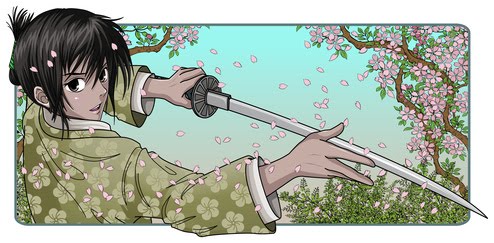In a previous post, I said that patience was the most important virtue for a self-pub, indie author. But that left me thinking about the real meaning of an author's decision to go the self-pub route. I said then that I thought the chief motivation was impatience with the process of getting a traditional publisher's attention, whether through the medium of an agent or otherwise.
Self-pub can give a writer instant gratification, but it can also lead to premature publication. For the most part, writers need to rely on the assistance of others to bring a fully realized project to the public. In part this is a matter of not possessing or having access to all the skills needed, namely editing, marketing and promotion. These are the skills typically provided by a traditional publisher or agent.
But if impatience is the indie author's chief motivation, the counsel to patience might seem particularly unhelpful. And perhaps it is. But just in case it is still true, what follows?
It may well be the truth that impatience with traditional publishing is a bad reason to self-pub. But if that's so, what's a good reason? One possibility is the fear that agents and publishers won't recognize the virtue of something new. We may think that they are only interested in formulaic products that imitate past successes. This is probably not as true as one might like to believe. But it is still a valid concern. An agent or a publisher charges a fee that reflects the quality of their judgment about just these things. If a writer is unsatisfied with precisely their judgment, then he shouldn't hire them. Whether his own judgment about this is correct or not is beside the point.
Obviously, there is a fine line here. Formulas can reflect profound truths about our shared human experience. One ignores them at risk. That's not to endorse a slavish adherence to formula. But it is a caution about hasty criticism of the judgment of seasoned publishing professionals. They may seem jaded to the neophyte, but they may still really be wise.
So, if the best motivation is not impatience with traditional publishing but lack of confidence in the judgment of the gatekeepers to traditional publishing, the onus is on the indie author to develop his own judgment to his own satisfaction. If you don't trust the wisdom of others, then you must be assured of your own wisdom. But most indie authors have not had any experience in publishing, and thus are very likely not to have any special wisdom.
The only solution is to take the time to learn something about publishing, about editing, about marketing. And even more importantly, to pursue the ongoing process of becoming a better writer. But the important thing to hear in that result is the need to take one's time. Self-publishing is best viewed not as a shortcut, but an assertion of the author's autonomy. In the best case, it should probably take roughly as long to self-publish in a fully satisfactory way as to go from initial sketch to a traditionally published novel on a bookstore shelf. In other words, it should still take several years. So my counsel is still patience.

No comments:
Post a Comment